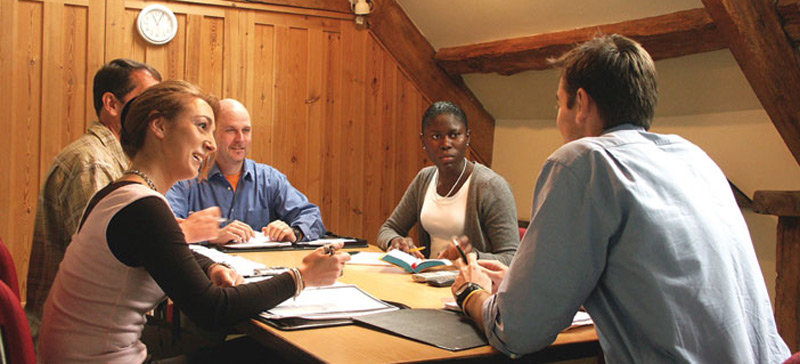A common dilemma faced by many young people seeking a job in the globalized 21st century economy is that they often lack work experience. But in true “Catch 22” fashion, it’s impossible to have experience if employers aren’t willing to hire you without any in the first place. Adding to this frustration is the knowledge that until recently, a university education was sufficient to land that first job. But if not in time, at least in reality, those days are far behind us.
Fortunately for the job seekers of tomorrow, however, the paradigm about what are considered essential job skills is changing. Many experts today agree that the skill set required in the workplace for the 21st century is significantly different from that needed by previous generations. And even more fortunate for the language learner, many of the skills that are needed today can be acquired by learning a language and in particular, by learning a language abroad. Let’s have a closer look at a few of these necessary skills and see how studying abroad can help you meet them.
Critical Thinking and Problem Solving
Have you ever needed to express yourself in a foreign language but didn’t have the exact vocabulary? What did you do? In all likelihood, you thought around the problem – explaining and conferring in an abstract way until you got what you needed. Such skills are applicable in the workplace as well – the solutions to day-to-day problems are rarely clear-cut and direct.
Agility and Adaptability
This basically means thinking on your feet and having the ability to respond to problems. Does learning a language abroad teach you this skill? You bet! For proof, negotiate the London tube system during rush hour by inquiring and explaining where you need to go to a busy Londoner. That’s street level agility and adaptability training at it’s best!
Accessing and Analyzing Information
It’s Saturday afternoon and you’ve just arrived in New York City. You’d like to make plans for the evening. What do you do? You can go online, read a newspaper, or ask a local. All of these skills are basic training for the working world – and the fact that you’re training in a foreign language makes you all the more qualified.
Collaboration across cultural boundaries
The examples and possibilities here are endless: you need to explain to your host family that you don’t eat pork; you’re having problems with your studies and need to talk to the school director; there’s mutual interest between you and another student in your class but your knowledge of a common language is limited. All of these challenges are a microcosm of what you will face in the “real world” and navigating them is excellent training ground.
These are just a few examples of the skills that are needed in the 21st century and how language study abroad can help you meet them. So after your language project, when you go to that next job interview and your potential employer asks you what experience you have, cite the fact that as a learner of languages you are able to meet the challenges of the changing world.
Two millennia ago, the proudest boast was to say “Civis Romanus Sum” (I’m a citizen of Rome). Today, as a learner of languages, you can rightfully claim “Civis Mundi Sum” – I am a citizen of the world.




What do you think?